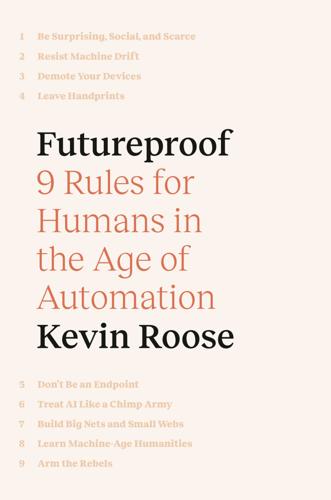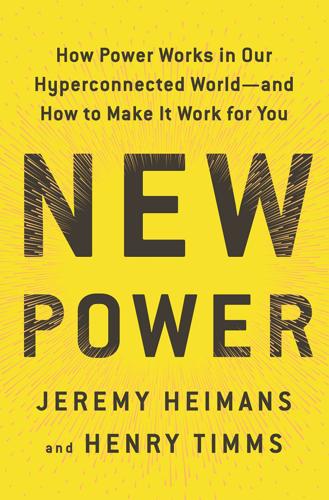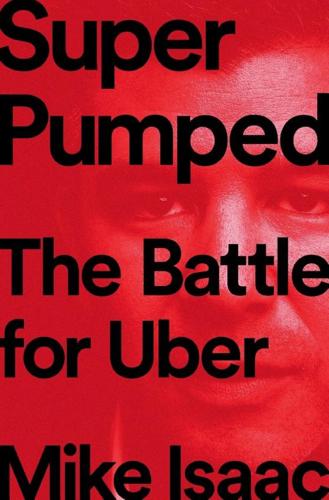hustle culture
3 results back to index

pages: 208 words: 57,602
Futureproof: 9 Rules for Humans in the Age of Automation by Kevin Roose
"World Economic Forum" Davos, adjacent possible, Airbnb, Albert Einstein, algorithmic bias, algorithmic management, Alvin Toffler, Amazon Web Services, Atul Gawande, augmented reality, automated trading system, basic income, Bayesian statistics, Big Tech, big-box store, Black Lives Matter, business process, call centre, choice architecture, coronavirus, COVID-19, data science, deep learning, deepfake, DeepMind, disinformation, Elon Musk, Erik Brynjolfsson, factory automation, fake news, fault tolerance, Frederick Winslow Taylor, Freestyle chess, future of work, Future Shock, Geoffrey Hinton, George Floyd, gig economy, Google Hangouts, GPT-3, hiring and firing, hustle culture, hype cycle, income inequality, industrial robot, Jeff Bezos, job automation, John Markoff, Kevin Roose, knowledge worker, Kodak vs Instagram, labor-force participation, lockdown, Lyft, mandatory minimum, Marc Andreessen, Mark Zuckerberg, meta-analysis, Narrative Science, new economy, Norbert Wiener, Northpointe / Correctional Offender Management Profiling for Alternative Sanctions, off-the-grid, OpenAI, pattern recognition, planetary scale, plutocrats, Productivity paradox, QAnon, recommendation engine, remote working, risk tolerance, robotic process automation, scientific management, Second Machine Age, self-driving car, Shoshana Zuboff, Silicon Valley, Silicon Valley startup, social distancing, Steve Jobs, Stuart Kauffman, surveillance capitalism, tech worker, The Future of Employment, The Wealth of Nations by Adam Smith, TikTok, Travis Kalanick, Uber and Lyft, uber lyft, universal basic income, warehouse robotics, Watson beat the top human players on Jeopardy!, work culture
This strategy has become increasingly popular in recent years, with the advent of so-called “hustle culture.” All over social media, influencers and business gurus preach the value of productivity and constant, ceaseless effort. They post inspirational “hustle porn” memes on Twitter, LinkedIn, and Instagram with phrases like “Rise and Grind” or “Thank God It’s Monday.” They trade life hacking tips and cut out unnecessary cognitive burdens by wearing the same clothes every day or eating the same thing at every meal. Hustle culture has a long lineage. In the late eighteenth and early nineteenth centuries, a former steelworker named Frederick Winslow Taylor came up with a theory of “scientific management” that took the American business community by storm.
…
Marissa Mayer, the former chief executive at Yahoo, bragged in a 2016 interview about how hard she worked, saying that it was technically possible to work as many as 130 hours a week “if you’re strategic about when you sleep, when you shower, and how often you go to the bathroom.” Unlike Taylor’s scientific management, which was often mandated from the top down, hustle culture is typically self-imposed. It’s an outgrowth of the philosophy the writer Derek Thompson has called “workism”—the belief, common especially among type-A millennial overachievers, that work is not just an economic necessity but the primary source of identity and meaning in our lives. There are plenty of reasons to reject hustle culture. It carries real risks to workers’ physical and mental health. It tends to favor young, childless, able-bodied men, who are less likely to have family responsibilities and more likely to be able to work punishingly long hours.
…
It tends to favor young, childless, able-bodied men, who are less likely to have family responsibilities and more likely to be able to work punishingly long hours. And it reinforces a brutal, regressive capitalist ethos that can undermine efforts to make workplaces more equitable and humane. But I want to draw your attention to a more immediate problem with hustle culture, which is that in the age of AI and automation, hustling is actually counterproductive. No matter how hard you work, you simply cannot outwork an algorithm. If you try, not only will you lose, but you will sacrifice your unique human advantages in the process. The idea that we can outwork machines is a seductive fantasy, going all the way back to the legend of John Henry and the steam engine.

Working Hard, Hardly Working by Grace Beverley
Cal Newport, clockwatching, COVID-19, David Heinemeier Hansson, death from overwork, glass ceiling, global pandemic, hustle culture, Jeff Bezos, karōshi / gwarosa / guolaosi, Paradox of Choice, Parkinson's law, Sheryl Sandberg, side hustle, stop buying avocado toast, TED Talk, TikTok, unpaid internship, work culture
Thankfully, there are many people out there who don’t kill themselves at work despite this culture; who are happy keeping a balance of earning just enough, enjoying their job and working at 60 per cent capacity day-to-day so they can finish early and go for a pint or a run or whatever else they enjoy. But what isn’t right is that this is seen almost like an act of rebellion within our new working world. What I find particularly contradictory in the rise of hustle culture is that not all hustle was created equal. There’s a discrepancy between the hustle culture I’m discussing – normalised unrelenting busyness and hustle-porn – and those who need to work extra jobs and excessive hours in order to make ends meet. It’s one of the fundamental paradoxes of capitalism that work can be both glamorous and ugly; covetable and exploitative.
…
While it might not settle the debate once and for all, perhaps it could be rephrased as ‘we might be lazy, but it’s because we’re burned out’, or ‘we might be entitled, but that’s because we are entitled to expectations that don’t involve financial crashes, job shortages, climates ascending at an alarming rate and affordable housing as an exception to the rule’. Perhaps it also says something that I’m not even part of the millennial cohort discussed – born in 1997, I teeter on the cusp and fall into Generation Z by definition – and I’m a homeowner, yet I still feel the afflictions of our hustle culture and situationally-induced burnout. The fact that I agree with Petersen, and yet am not a millennial, does not negate her argument in the slightest. In fact, it shows just how epochal these issues stand to be – perhaps it’s not just a single burnout generation we’re looking at, but an entire new burnout culture created by our new working world.
…
Generally, we no longer think it’s necessary to sit through fifteen years of corporate work in order to know the field and move up the rankings, paying respect to the culture in return for a pension we’re not even guaranteed to receive. We’d rather better our chances by trying our own luck, spurred on by side-hustle culture. We refuse to be put in a box, but suffer from the lack of boundaries that comes from moving beyond those walls of traditional benchmarks. As a generation, we’ve grown up without definitive borders between work and ‘not-work’. Technology allows us constant access to our working lives, which has slowly but surely developed into an anxiety that not working anywhere and everywhere is the equivalent of being in the office and having a nap.

pages: 304 words: 86,028
Bootstrapped: Liberating Ourselves From the American Dream by Alissa Quart
2021 United States Capitol attack, 3D printing, affirmative action, Affordable Care Act / Obamacare, Alan Greenspan, Bernie Sanders, Black Lives Matter, Burning Man, Capital in the Twenty-First Century by Thomas Piketty, carried interest, coronavirus, COVID-19, critical race theory, crowdsourcing, Daniel Kahneman / Amos Tversky, David Graeber, defund the police, Donald Trump, Elon Musk, financial independence, fixed income, George Floyd, gig economy, glass ceiling, high net worth, housing justice, hustle culture, illegal immigration, impact investing, income inequality, independent contractor, invisible hand, Jeff Bezos, lockdown, longitudinal study, loss aversion, Lyft, Marc Benioff, Mark Zuckerberg, meta-analysis, microaggression, Milgram experiment, minimum wage unemployment, multilevel marketing, obamacare, Overton Window, payday loans, post-work, Ralph Waldo Emerson, ride hailing / ride sharing, Ronald Reagan, Salesforce, Scientific racism, sharing economy, Sheryl Sandberg, side hustle, Silicon Valley, Silicon Valley ideology, Snapchat, social distancing, Steve Jobs, Steve Wozniak, tech worker, TED Talk, Travis Kalanick, trickle-down economics, Uber and Lyft, uber lyft, union organizing, W. E. B. Du Bois, wealth creators, women in the workforce, working poor, Works Progress Administration
It was in the exhortations of former SoulCycle CEO Melanie Whelan, who pushed “hustle culture” to one and all. “Hustle opens the doors of opportunity,” Whelan once said, encouraging her followers to work long days with the exhortation to “rise and grind.” The urban legends of side hustling at its worst included one Lyft driver who continued to pick up riders after she went into labor, then Lyft-ed herself to the hospital to give birth, and T-shirts with the slogan “9 TO 5 IS FOR THE WEAK.” It was in a set of risible “hustle culture” memes extolling the “grindset.” One maxim: “You can’t make excuses and money.

pages: 190 words: 62,941
Wild Ride: Inside Uber's Quest for World Domination by Adam Lashinsky
"Susan Fowler" uber, "World Economic Forum" Davos, Airbnb, always be closing, Amazon Web Services, asset light, autonomous vehicles, Ayatollah Khomeini, Benchmark Capital, business process, Chuck Templeton: OpenTable:, cognitive dissonance, corporate governance, DARPA: Urban Challenge, Didi Chuxing, Donald Trump, driverless car, Elon Musk, Erlich Bachman, gig economy, Golden Gate Park, Google X / Alphabet X, hustle culture, independent contractor, information retrieval, Jeff Bezos, John Zimmer (Lyft cofounder), Lyft, Marc Andreessen, Mark Zuckerberg, megacity, Menlo Park, multilevel marketing, new economy, pattern recognition, price mechanism, public intellectual, reality distortion field, ride hailing / ride sharing, Salesforce, San Francisco homelessness, Sand Hill Road, self-driving car, side hustle, Silicon Valley, Silicon Valley billionaire, Silicon Valley startup, Skype, Snapchat, South of Market, San Francisco, sovereign wealth fund, statistical model, Steve Jobs, super pumped, TaskRabbit, tech worker, Tony Hsieh, transportation-network company, Travis Kalanick, turn-by-turn navigation, Uber and Lyft, Uber for X, uber lyft, ubercab, young professional
For the entire month of September, when Kalanick negotiated his terms for becoming CEO, UberCab transported 427 riders. As it would raise money and expand to a handful of additional cities over the course of the next year, the young company would be fueled by a combination of transformative technology and old-fashioned, seat-of-the-pants human effort. Uber’s was a “hustle culture,” with a can-do spirit of long hours and a try-anything-once work ethic. In time, Kalanick would hit on the trope of “bits and atoms” to describe Uber’s unique matching of digital prowess with physical assets that set it apart from the prominent Internet companies that had come before it. Such pithy descriptions were a ways off, however.

pages: 306 words: 71,100
Minimal: How to Simplify Your Life and Live Sustainably by Madeleine Olivia
Airbnb, An Inconvenient Truth, BIPOC, carbon footprint, clean water, climate anxiety, Extinction Rebellion, food desert, food miles, hustle culture, Mason jar, microplastics / micro fibres, Naomi Klein, ocean acidification
This is not a drill, people; we’re talking species extinction. A mass movement and overhaul of society is required to stop the worst from happening, and political action is needed. Capitalism has enabled so many of us to grow our incomes, consume more crap we don’t need and use way more resources than we should be allowing ourselves. We need to stop the hustle culture, flaunting what we own and constantly striving for more more more. Instead, we need to make people strive for less. Less stuff, less work and less greed. We need to minimise on a worldwide scale. Public attitudes are already changing, but are the top 1 per cent listening? The final thing I want to say is that this is complicated.

pages: 416 words: 100,130
New Power: How Power Works in Our Hyperconnected World--And How to Make It Work for You by Jeremy Heimans, Henry Timms
"Susan Fowler" uber, "World Economic Forum" Davos, 3D printing, 4chan, Affordable Care Act / Obamacare, Airbnb, algorithmic management, augmented reality, autonomous vehicles, battle of ideas, benefit corporation, Benjamin Mako Hill, Big Tech, bitcoin, Black Lives Matter, blockchain, British Empire, Chris Wanstrath, Columbine, Corn Laws, crowdsourcing, data science, David Attenborough, death from overwork, Donald Trump, driverless car, Elon Musk, fake news, Ferguson, Missouri, future of work, game design, gig economy, hiring and firing, holacracy, hustle culture, IKEA effect, impact investing, income inequality, informal economy, job satisfaction, John Zimmer (Lyft cofounder), Jony Ive, Kevin Roose, Kibera, Kickstarter, Lean Startup, Lyft, Mark Zuckerberg, Minecraft, Network effects, new economy, Nicholas Carr, obamacare, Occupy movement, post-truth, profit motive, race to the bottom, radical decentralization, ride hailing / ride sharing, rolling blackouts, rolodex, Salesforce, Saturday Night Live, sharing economy, side hustle, Silicon Valley, six sigma, Snapchat, social web, subscription business, TaskRabbit, tech billionaire, TED Talk, the scientific method, transaction costs, Travis Kalanick, Uber and Lyft, uber lyft, upwardly mobile, web application, WikiLeaks, Yochai Benkler
Despite its new power model, Uber has a track record of sabotaging its competitors, intimidating journalists, and hoodwinking government regulators to come out on top. In a leaked document that detailed what it looked for in employees, Uber highlights “fierceness” and “super-pumpedness,” all part of a “hustle” culture. It’s worth noting that while norms around collaboration and “sharing” are now all the rage in our business and culture, that doesn’t mean they always produce better outcomes. A recent study in Applied Psychology found that “cooperative contexts proved socially disadvantageous for high performers”—who find themselves ostracized by the rest of the group.

pages: 322 words: 106,663
Women Talk Money: Breaking the Taboo by Rebecca Walker
Affordable Care Act / Obamacare, anti-communist, back-to-the-land, BIPOC, Black Lives Matter, call centre, clean water, coronavirus, COVID-19, export processing zone, fake news, Ferguson, Missouri, financial independence, gentrification, George Floyd, global pandemic, high net worth, hockey-stick growth, hustle culture, impact investing, invisible hand, Jeff Bezos, job satisfaction, Kickstarter, Mark Zuckerberg, mass incarceration, Maui Hawaii, microaggression, neurotypical, obamacare, opioid epidemic / opioid crisis, Rana Plaza, Silicon Valley, Silicon Valley startup, TED Talk, unpaid internship, upwardly mobile, women in the workforce, working poor, Y Combinator
No matter what social justice hashtags were trending for the week, I would find another way to pay the rent. As journalist Diyora Shadijanova tweeted in the spring of 2021: at some point we have to recognise that the financial anxiety young people are living through is not normal. monetising all your hobbies is not normal. hustle culture is not normal. glorifying precarious work is not normal. self-optimisation is not normal. Watching sponsorship inquiries trickle to nothing, I moved my moneymaking endeavors away from social media. And I moved my home from California to the land where I grew up, on Maui, to live in a two-hundred-square-foot studio.

pages: 444 words: 127,259
Super Pumped: The Battle for Uber by Mike Isaac
"Susan Fowler" uber, "World Economic Forum" Davos, activist fund / activist shareholder / activist investor, Airbnb, Albert Einstein, always be closing, Amazon Web Services, Andy Kessler, autonomous vehicles, Ayatollah Khomeini, barriers to entry, Bay Area Rapid Transit, Benchmark Capital, Big Tech, Burning Man, call centre, Cambridge Analytica, Chris Urmson, Chuck Templeton: OpenTable:, citizen journalism, Clayton Christensen, cloud computing, corporate governance, creative destruction, data science, Didi Chuxing, don't be evil, Donald Trump, driverless car, Elon Musk, end-to-end encryption, fake news, family office, gig economy, Google Glasses, Google X / Alphabet X, Greyball, Hacker News, high net worth, hockey-stick growth, hustle culture, impact investing, information security, Jeff Bezos, John Markoff, John Zimmer (Lyft cofounder), Kevin Roose, Kickstarter, Larry Ellison, lolcat, Lyft, Marc Andreessen, Marc Benioff, Mark Zuckerberg, Masayoshi Son, mass immigration, Menlo Park, Mitch Kapor, money market fund, moral hazard, move fast and break things, Network effects, new economy, off grid, peer-to-peer, pets.com, Richard Florida, ride hailing / ride sharing, Salesforce, Sand Hill Road, self-driving car, selling pickaxes during a gold rush, shareholder value, Shenzhen special economic zone , Sheryl Sandberg, side hustle, side project, Silicon Valley, Silicon Valley startup, skunkworks, Snapchat, SoftBank, software as a service, software is eating the world, South China Sea, South of Market, San Francisco, sovereign wealth fund, special economic zone, Steve Bannon, Steve Jobs, stock buybacks, super pumped, TaskRabbit, tech bro, tech worker, the payments system, Tim Cook: Apple, Travis Kalanick, Uber and Lyft, Uber for X, uber lyft, ubercab, union organizing, upwardly mobile, Vision Fund, WeWork, Y Combinator
This shift in the funding of American technology businesses would change the way a generation of the most successful startup founders would expect to be treated by their backers—the “cult of the founder” meant celebrating the vision of the founder no matter what, a slavish devotion to the CEO of a company simply because he was the CEO. Twelve-hour workdays and a nonexistent social life became things to be celebrated, the markers of a “hustle culture” that the tech bro founders embodied. (Of course, these hardworking bros also played hard, at events like X to the x.) Even when those founders were bending rules and even laws, they were treated as Platonic philosopher kings. Many believed the founders were remaking the world, making it smarter, more logical, meritocratic, efficient, and beautiful—delivering a new and much improved version: an upgrade on life.

Four Battlegrounds by Paul Scharre
2021 United States Capitol attack, 3D printing, active measures, activist lawyer, AI winter, AlphaGo, amateurs talk tactics, professionals talk logistics, artificial general intelligence, ASML, augmented reality, Automated Insights, autonomous vehicles, barriers to entry, Berlin Wall, Big Tech, bitcoin, Black Lives Matter, Boeing 737 MAX, Boris Johnson, Brexit referendum, business continuity plan, business process, carbon footprint, chief data officer, Citizen Lab, clean water, cloud computing, commoditize, computer vision, coronavirus, COVID-19, crisis actor, crowdsourcing, DALL-E, data is not the new oil, data is the new oil, data science, deep learning, deepfake, DeepMind, Demis Hassabis, Deng Xiaoping, digital map, digital rights, disinformation, Donald Trump, drone strike, dual-use technology, Elon Musk, en.wikipedia.org, endowment effect, fake news, Francis Fukuyama: the end of history, future of journalism, future of work, game design, general purpose technology, Geoffrey Hinton, geopolitical risk, George Floyd, global supply chain, GPT-3, Great Leap Forward, hive mind, hustle culture, ImageNet competition, immigration reform, income per capita, interchangeable parts, Internet Archive, Internet of things, iterative process, Jeff Bezos, job automation, Kevin Kelly, Kevin Roose, large language model, lockdown, Mark Zuckerberg, military-industrial complex, move fast and break things, Nate Silver, natural language processing, new economy, Nick Bostrom, one-China policy, Open Library, OpenAI, PalmPilot, Parler "social media", pattern recognition, phenotype, post-truth, purchasing power parity, QAnon, QR code, race to the bottom, RAND corporation, recommendation engine, reshoring, ride hailing / ride sharing, robotic process automation, Rodney Brooks, Rubik’s Cube, self-driving car, Shoshana Zuboff, side project, Silicon Valley, slashdot, smart cities, smart meter, Snapchat, social software, sorting algorithm, South China Sea, sparse data, speech recognition, Steve Bannon, Steven Levy, Stuxnet, supply-chain attack, surveillance capitalism, systems thinking, tech worker, techlash, telemarketer, The Brussels Effect, The Signal and the Noise by Nate Silver, TikTok, trade route, TSMC
., https://macropolo.org/digital-projects/chinai/the-companies/. 93China’s AI “national team”: Jeffrey Ding, “ChinAI #51: China’s AI ‘National Team,’” ChinAI Newsletter, May 20, 2019, https://chinai.substack.com/p/chinai-51-chinas-ai-national-team. 93“China’s Silicon Valley”: “China’s Silicon Valley Is Transforming China, but Not Yet the World,” The Economist, July 13, 2019, https://www.economist.com/china/2019/07/11/chinas-silicon-valley-is-transforming-china-but-not-yet-the-world; Meng Jing, “Zhongguancun: Beijing’s Innovation Hub Is at the Centre of China’s Aim to Become a Tech Powerhouse,” South China Morning Post, November 13, 2018, https://www.scmp.com/tech/start-ups/article/2172713/zhongguancun-beijings-innovation-hub-centre-chinas-aim-become-tech; “Zhongguancun, China’s Silicon Valley,” China.org.cn, December 12, 2002, http://www.china.org.cn/english/travel/51023.htm. 93employees expected to work “996”: Lin Qiqing and Raymond Zhong, “‘996’ Is China’s Version of Hustle Culture. Tech Workers Are Sick of It,” New York Times, April 29, 2019, https://www.nytimes.com/2019/04/29/technology/china-996-jack-ma.html. 93iFLYTEK: Ding, “ChinAI #51: China’s AI ‘National Team.” 93sixth smartest company in the world: SpaceX, in “What Are the 50 Smartest Companies?” MIT Technology Review, June 27, 2017, https://www.technologyreview.com/lists/companies/2017/intro/#spacex (page discontinued). 93twelve awards: Zhu Lixin, “iFlytek Delivers on Promise to Become Major Player,” Chinadaily.com.cn, updated February 19, 2019, https://www.chinadaily.com.cn/a/201902/19/WS5c6b5f9ba3106c65c34ea0c3.html; iFLYTEK, “iFLYTEK, Asia’s AI Leader, Unveils iFLYTEK Translator 2.0, iFLYREC Series Voice-to-Text Products, AI Note and iFLYOS at CES 2019,” news release, January 6, 2019, https://www.marketwatch.com/press-release/iflytek-asias-ai-leader-unveils-iflytek-translator-20-iflyrec-series-voice-to-text-products-ai-note-and-iflyos-at-ces-2019-2019-01-06 (page discontinued). 9450 percent of the company’s $1 billion in annual revenue: Lin Ji, interview by author, July 8, 2019. 94The “customer is like god”: Lin, interview. 94Independent investigations of iFLYTEK operations in Xinjiang: Alexandra Harney, “Risky Partner: Top U.S.